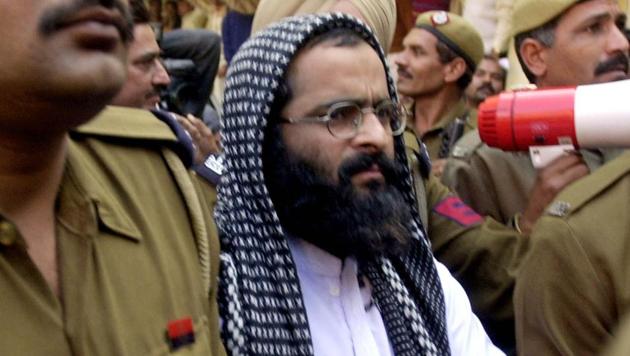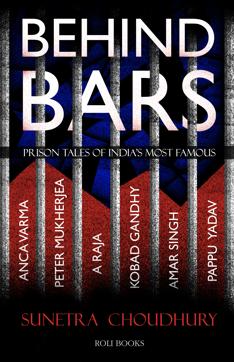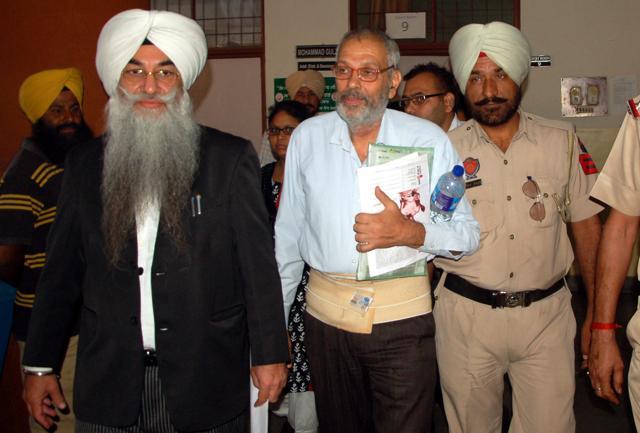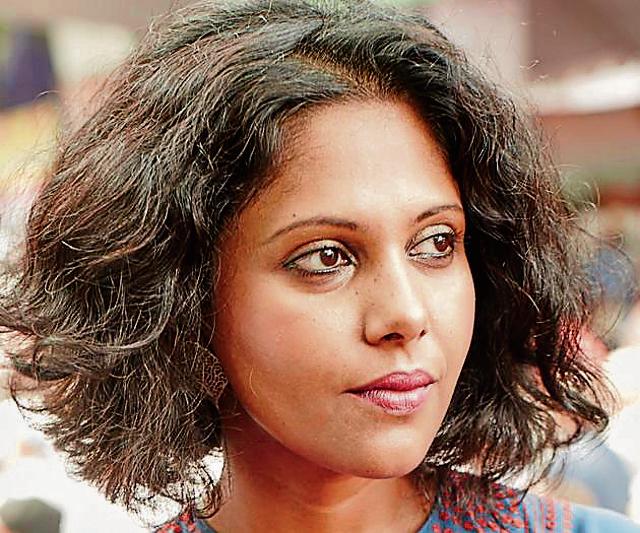Afzal had deep dislike for Pakistan, ISI: Khobad Gandhy in letter to journalist
Sunetra Choudhury’s new book is on India’s famous prisoners. This excerpt features Kobad Gandhy’s view of Afzal Guru, who was hanged to death on Feb 9, 2013
When the Jawaharlal Nehru (JNU) Campus became the setting for a nationalism debate in the spring of 2016 after a group of students wanted to mark the anniversary of Afzal Guru’s hanging, there was one person watching things very, very carefully… Sixty-nine-year-old Kobad Ghandy, who…scanned the papers every morning during that period for the fallout of what happened that February night in JNU. And what he read – about three students being sent to jail for organizing this event to commemorate Afzal Guru, about the central university being called anti-national, about pro-Pakistan statements/slogans being made – disturbed him. And while so many across the country jumped in on the debate, no one cared for Kobad’s thoughts. What they didn’t know was that Kobad Ghandy, the man accused of being a member of the banned organization, CPI (Maoist) and arrested in 2009, was perhaps the only one who knew Afzal Guru in his last three years and is also the only one who can describe from inside jail, how his hanging took place.


‘They all kept misrepresenting Afzal Guru,’ he told me, inside the Cherlapally jail in Hyderabad, at the end of 2016. ‘There was so much talk about Afzal being anti-national. He was not.’ Kobad should know. Afzal Guru and he became thick friends from the moment he walked into prison until 9 February 2012 when he was hanged. It’s not based on any solid, scientific evidence. It’s the impression of one prisoner of his co-prisoner of a high-risk ward. One was branded a Maoist ideologue, the other a convicted terrorist who plotted the 2001 Parliament attack...
An extract from the letter that Kobad Gandhy sent the author on September 17,2016
It was September 21st, 2009, when I first entered Tihar, at about 7pm. It was my first entry into and Indian jail. After going through two sets of humiliating searches, I entered the high risk ward of Jail number 3. The inmates had already been locked up in their own cells. And as I entered the ward of Block A ( there are 2 Blocks in this ward), I found Afzal Guru at the gate of his Cell 1, with a huge smile on his face saying- ``Welcome to Tihar, I was expecting you here. ‘’
He said he had been reading about me all over the newspapers and said we will meet in the morning. I was led to cell 4 and kept with three others, including Delhi’s most famous, Don Kisan Pehlwan.

The next morning, I was moved to cell 8 with two Khalistanis. The death sentenced Khalistani, Bhullar, was in cell 2. That morning I had tea with Affzal which was a practice I continued till the day he was hanged on February 9, 2013. It was Afzal’s standard practice to fill the thermos flask of Tihar’s watery tea and add to it milk powder and a few tea bags purchased from the canteen to give an excellent brew. For the next three years, each day we would have this, together with the two slices of bread supplied by the jail authorities. This was followed by a walk in the ground adjoining the ward. A regular practice through the years. This was the same ground that adjoined the Phaasi Koti where he was later hanged and buried.
And through the years I found in Afzal a very humane person, warm hearted and simple. A person who had a deep affection for his mother, his school teacher wife and only son. They would regularly visit him every Raksha Bandhan day when the lady family members were allowed into the jail to be with their relatives. His needs were very limited living off the Rs 1000 a month his wife sent from her meagre earnings.
Afzal Guru was exactly the opposite of what the media has portrayed him as- a fundamentalist fanatic. No doubt he was a staunch believer in Islam, and did his namaz 5 times a day, observed roza and other Islamic customs. He also had great faith in the other world - jannat - which gave him his enormous courage to go to the gallows with his head held high and apparently without an iota of fear.
Philosophically Afzal believed in the Sufi tradition of Islam with its emphasis on humanity, love and equality. He was a great admirer of Rumi and Iqbal. He had all the six volumes of Rumi in Urdu which was his regular companion; many of the excellent verses he translated for me over our morning tea.Through Afzal I learnt much of the human essence of Islam, so vulgarised by the dogmatists and fundamentalists.

Afzal was not only vehemently opposed to the methods of the fundamentalist of bombing/killing, the innocent public, he also had a deep dislike for the Pakistani/ISI. He would often say they were worse than the RAW and were responsible for the killings/assassinations of a large number of intellectuals who were for Azaadi and not for merger with Pakistan. Particularly during the JKLF upsurge in the 1990s, which was then not pro-Pak. Afzal said large numbers were killed by ISI besides the Indian government. He also gave me a concrete picture here virtually every aspect of Kashmiri life was controlled by the army making the entire valley like an open prison. He would regularly compare the life of Kashmiris to that of the Palestinians. He was under the opinion that the Pakistanis were doing more harm to the Kashmiris struggle than assisting it-Kashmiri people were being used as a mere tool in Pakistani’s conflict with India, the sacrificial lamb of the India Pak conflict.
Afzal had also great respect for communism ( unlike the fundamentalists) and even repeated Iqbal who had said: Communism + God= Islam. Afzal was very well read having a nearly equally good grasp over both Urdu and English. He had read people like Naom Chomsky and other progressives from the West. He loved Ghazals. In jail, the prison authorities had no complaint against him, notwithstanding the humiliations he apparently faced during the earlier period of his confinement.
Two days before Afzal’s hanging we were told to immediately move to the block at the back ( and those in the B Block were temporarily moved out) as white washing had to be done. But when we went to the B Block the gate leading to the ground which over-looked the big compound that housed the Phasi Koti was promptly closed so that we could not see what was going on outside. But we soon gathered hectic work was going on in the Phasi Koti. All sorts of rumours were spread by the staff that a foreign delegation was visiting.; may be Bhullar (who was by now shifted to the mental hospital) was to be hanged, etcetera etcetera.
Afzal would say if anyone was to be hanged, it was not Bhullar but himself. That evening though the fear was there in everyone’s mind, Afzal seemed as cheerful as ever.
The next morning the staff turned up half an hour late- at 6 am. When they opened Afzal’s cell-cell 1- he was heard saying that if there was to be any searching, do it later as they will first say their namaz. But after letting Afzal out, they locked his cell and did not open any other. It was then that he and we too realised what was to happen.
He was led away to his original cell in A Block where the law officer met him. He was told that the hanging was to take place at 8:00 am. He requested to speak to his family and son on the phone, which was refused. That all other legal norms had already been flouted by the Congress government are already known. He did his namaz, was given tea and biscuits; he had a bath and did his final namaz.
At 5 minutes to 8, he was led across the same ground we walked everyday, wishing all the staff present. and asking the authorities to treat them well. We were told later much of the staff had tears in their eyes as he wished them all well and fearlessly walked to the gallows. The prison authorities, at the behest of the government, refused to hand over his belongings, diary or even body to his family. He was buried two feet away from where the other Kashmiri Leader, Maqbool Bhat, was buried. Ironically too, Maqbool Bhatt seems to have been anti-Pakistan as well, as recently the books by him were banned by the Pakistani government.
And with this ended my association with the most humane, honest, straightforward and simple person I met during my seven years of incarceration in Tihar. Most Kashmiris were not like Afzal, except one Rafique who had much of the same characteristics as Afzal. But none, were as well-read as him. It is surprising why the Congress government sought to snuff out the life of the more rational voices in Kashmir, pushing the movement into the arms of the fundamentalists and pro-Pak elements...



